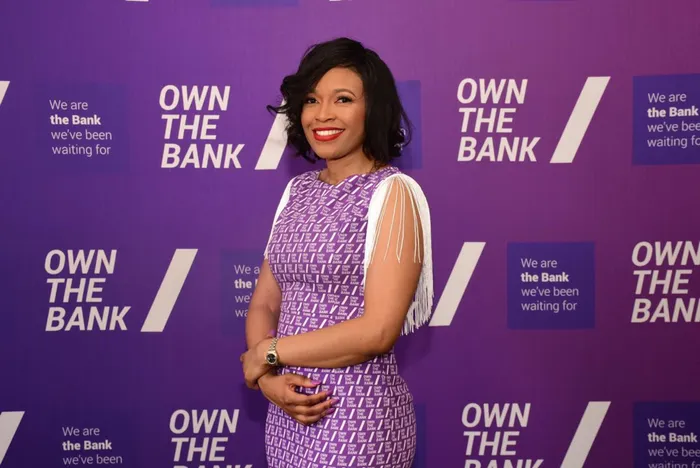AFRIBIZ takes on Nthabeleng Likotsi’s YWBN over collapsed R9 million share deal
Bank facing bleak future

Nthabeleng Likotsi, once praised as South Africa’s first woman to start a mutual bank, is now under scrutiny for a lack of transparency and mismanagement.
Image: Picture: Supplied
What was set to be the first black and female-owned bank is now facing a bleak future. AFRIBIZ Financial Services is taking legal action against YWBN Co-Operative Financial Institution and its founder, Nthabeleng Likotsi, after a failed R9 million share deal in the controversial YWBN Mutual Bank. AFRIBIZ says it is determined to see Likotsi do the right thing.
The dispute began when AFRIBIZ paid R9 million to buy a 26% stake in YWBN Mutual Bank. However, the deal collapsed after YWBN allegedly failed to submit important compliance documents required by the Prudential Authority, South Africa’s financial regulator.
Without these documents, the regulator could not approve the issuing of shares, putting the entire deal on hold.AFRIBIZ has accused YWBN of poor management and legal irregularities. The company says it spent significant time and money preparing for the investment and still wants to own the 26% stake it was promised.
In a letter to AFRIBIZ, YWBN admitted it could not meet the compliance requirements and offered to return the R9 million, even though the payment was originally marked as “non-refundable.”
Still, this offer did not settle the matter. Instead, YWBN suggested offering just 2% of shares in full and final settlement, which AFRIBIZ rejected outright.“Our client remains committed to acquiring the full 26% shareholding,” AFRIBIZ’s lawyers said in a statement following a meeting in April 2024.
This clash comes as YWBN faces growing criticism about its operations, governance, and leadership. Likotsi, once praised as South Africa’s first woman to start a mutual bank, is now under scrutiny for a lack of transparency and mismanagement. Back in 2021, the Companies and Intellectual Property Commission (CIPC) Tribunal ordered YWBN to return money to investors.
It ruled that the bank had not followed legal rules under the Co-operatives Act, had poor financial recordkeeping, and had collected questionable “non-refundable” membership fees from investors.
More recently, investors have raised concerns about YWBN relying on celebrity endorsements instead of proving its financial credibility. Legal experts say this case highlights risks in investing in new or unregulated financial institutions.
Advocate Mandla Tshabalala, a corporate law specialist, said, “For any bank or financial institution, compliance and transparency are not optional — they’re essential. Regulators must stay alert.”
As the legal battle heats up, AFRIBIZ is demanding that YWBN follow through on the original share agreement.
Despite YWBN’s offer to return the R9 million, AFRIBIZ says it will continue legal action until the full deal is honoured.
This high-profile case has put the spotlight on South Africa’s growing but fragile alternative banking sector. With trust in YWBN fading, many are now wondering if the dream of a women-led mutual bank can survive the fallout.
Asked about the previous issues with the CIPC Tribunal and now the legal dispute with AFRIBIZ, Likotsi said the YWBN received its clearance certificate from the CIPC, which indicates that we are compliant with all governance requirements.
“AfriBIZ Financial Services had a business interest in YWBN, when they couldn’t meet the minimum basic compliance requirements, we explored different ways they could participate, however, we could not reach an agreement. YWBN remains open and committed to engaging AfriBIZ in future business endeavours”
